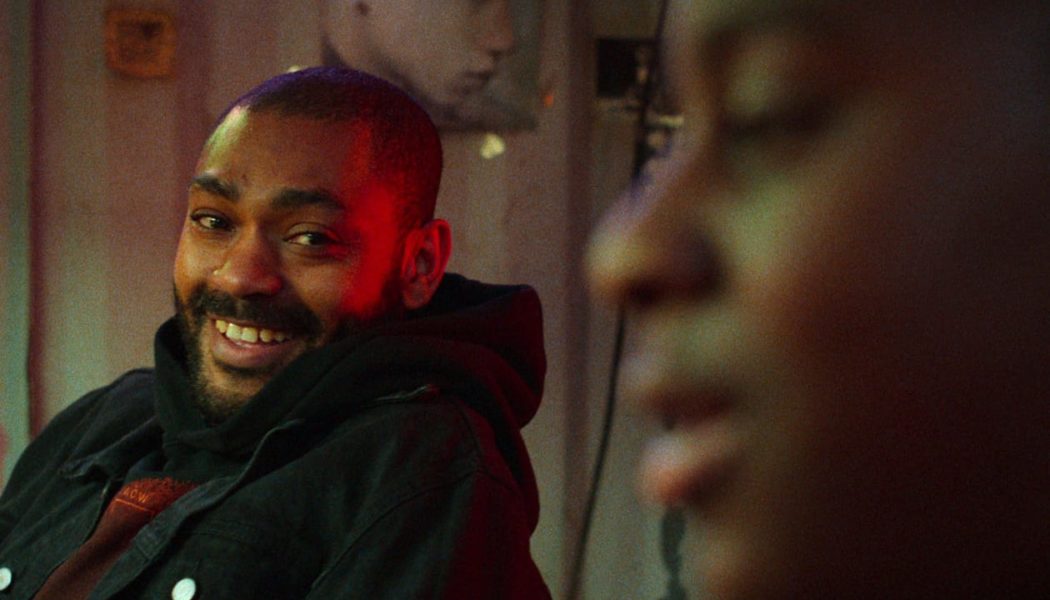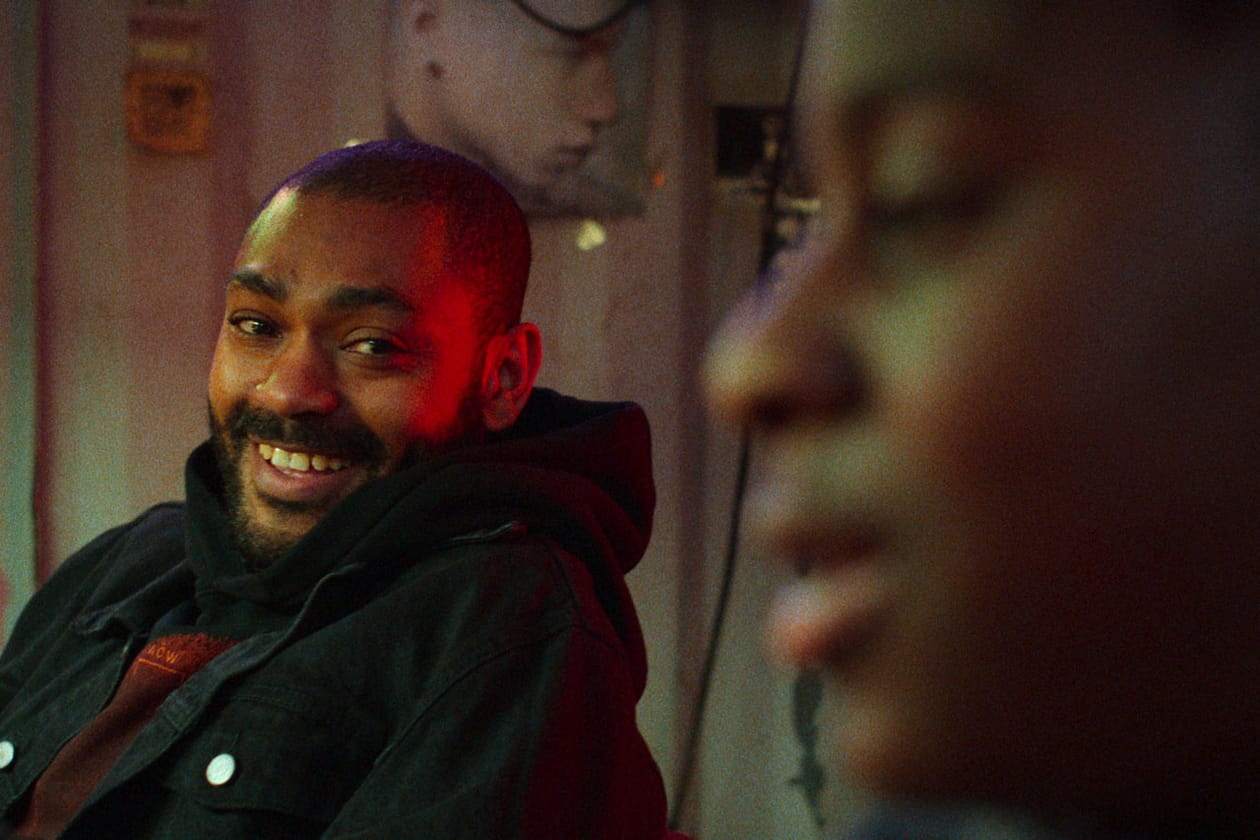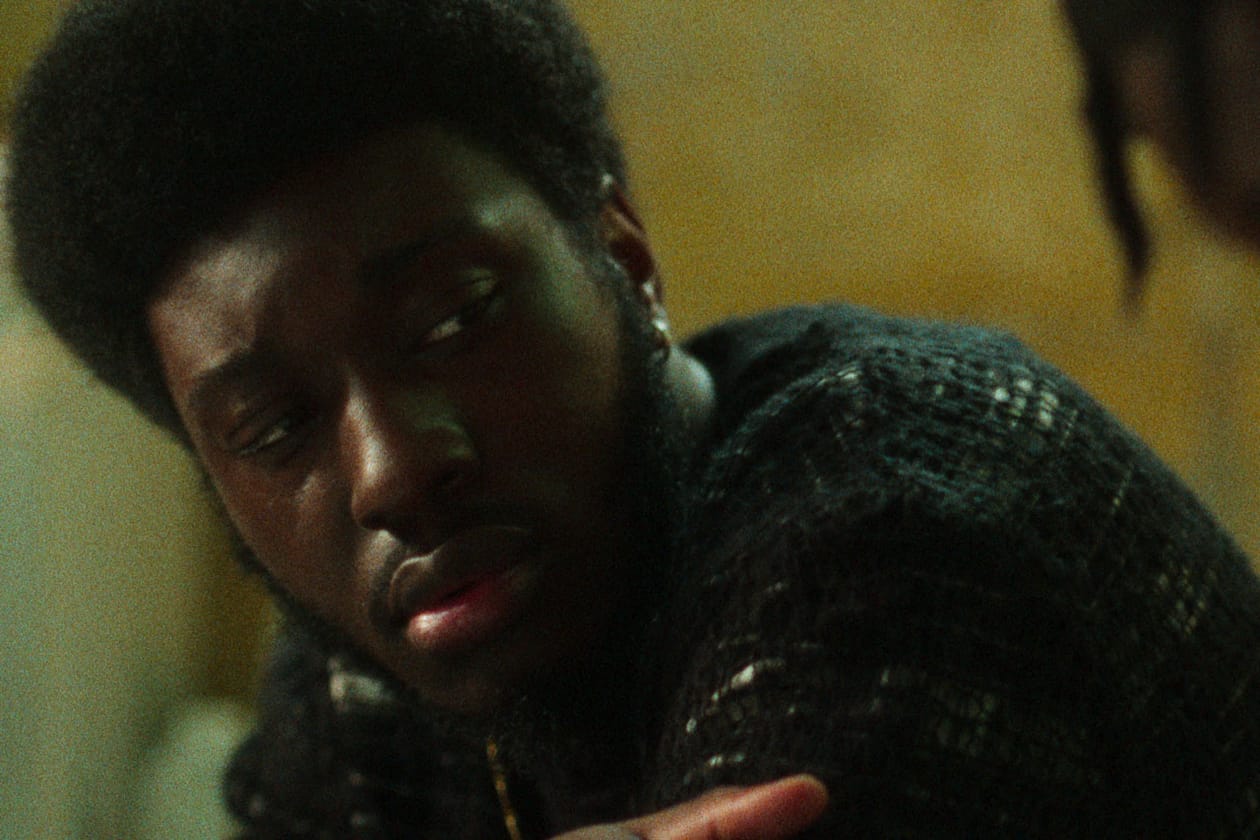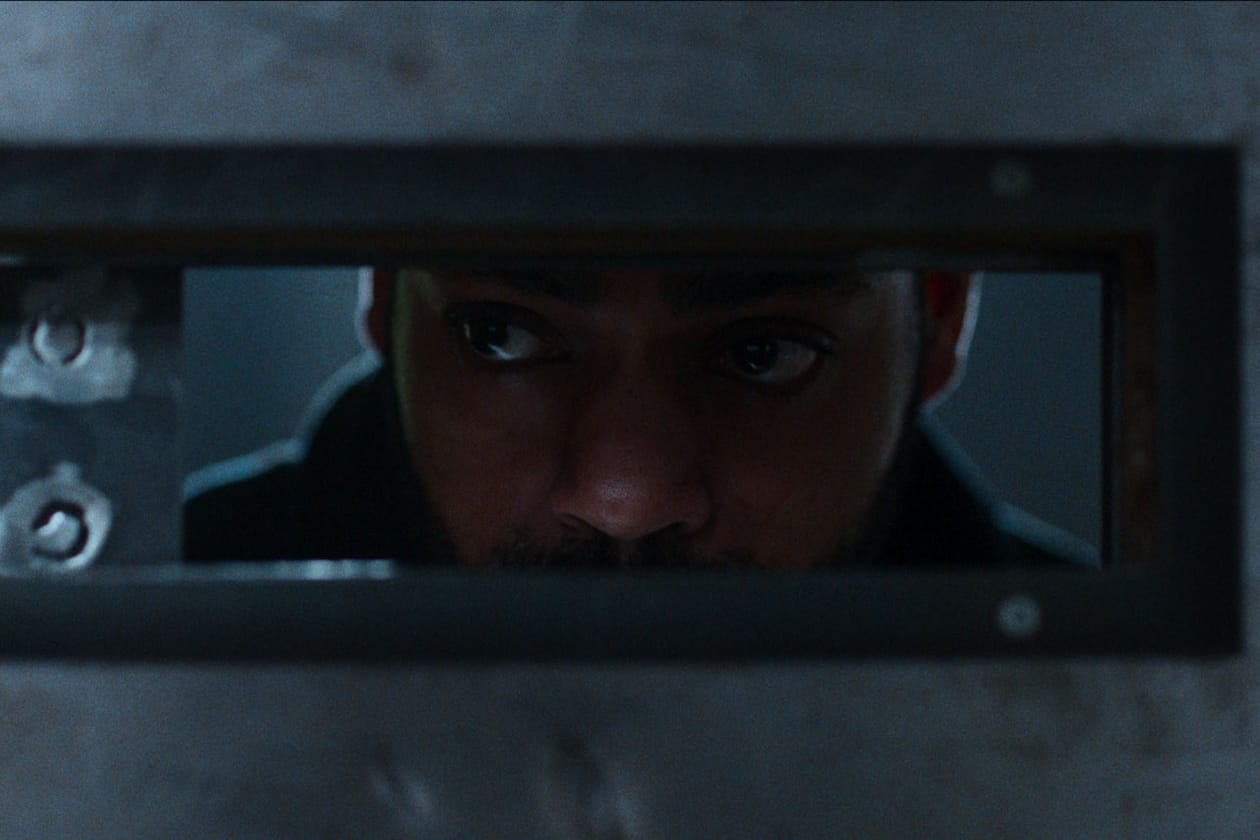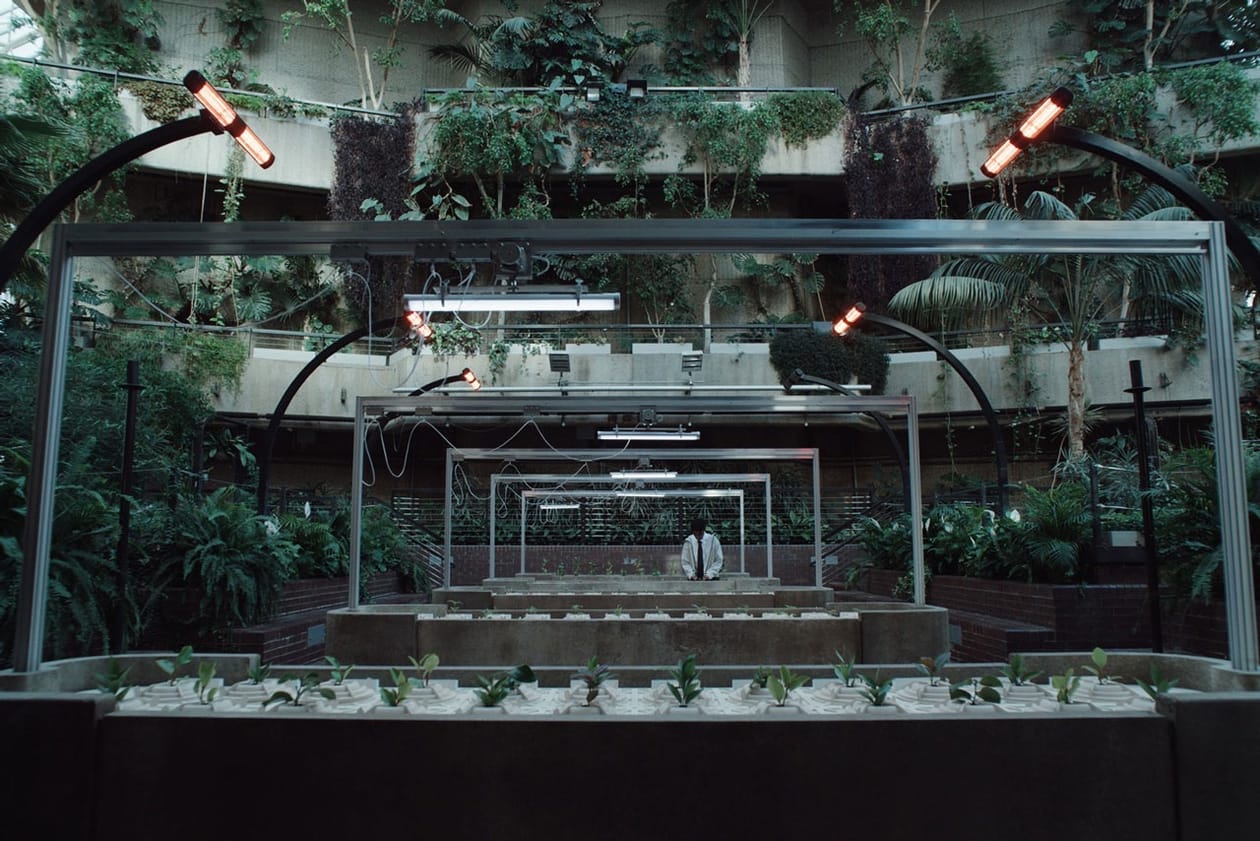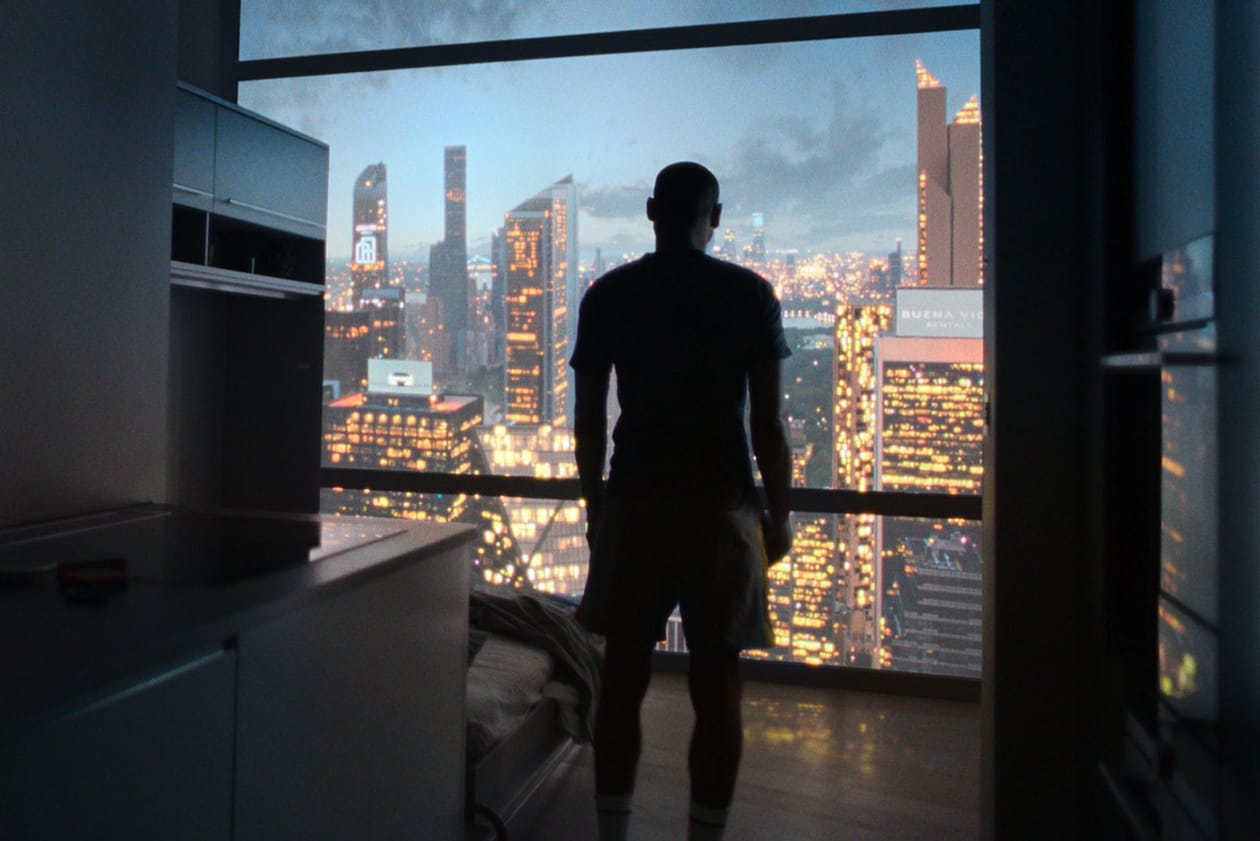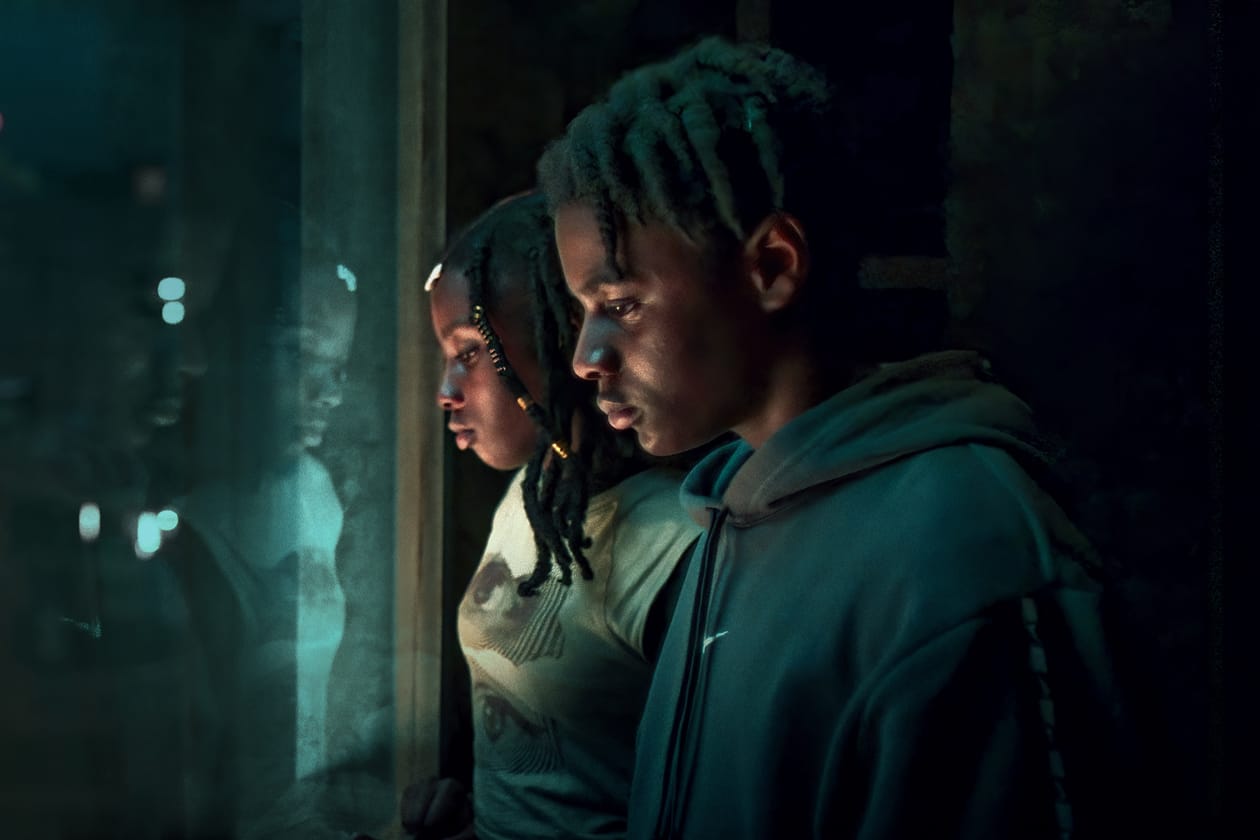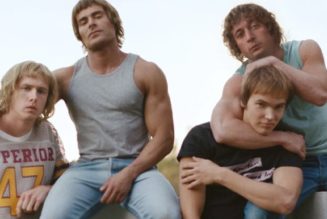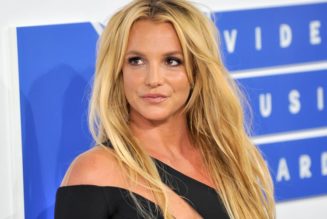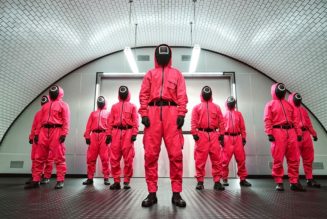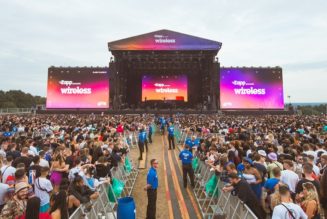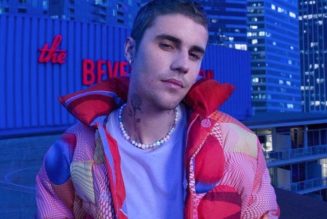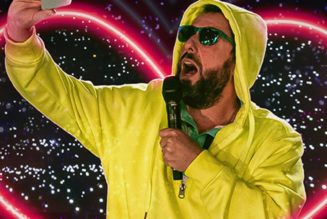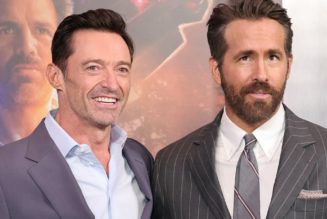Daniel Kaluuya, Kibwe Tavares, and Kane “Kano” Robinson are UK cinema’s favorite group right now. The trio has just released their first movie together, The Kitchen – presenting itself as Kaluuya and Tavares’ directorial debut and the first time Kano has taken to the screen since (spoiler alert) the death of his breakthrough character, Sully, in the hit UK drama, Top Boy, which concluded late last year.
The movie, described by Kaluuya as “reservoir dogs in a barber shop” when it first went into production, naturally grew into an ambitious blockbuster that encapsulates life living on the fringes of a poverty-driven society.
“The Kitchen is about a self-sufficient community, the last of its kind,” Kaluuya told Hypebeast when asked to describe the movie in a nutshell. But upon watching the film, it’s easy to discover that The Kitchen represents much more than that.
Set in a near-futuristic London where fluorescent hologram ads dance across signs and camera-wielding police drones loom silently in the air, The Kitchen is a juxtaposing chronicle of the on-goings in a future-facing, yet poor way of life, one that’s separated by luxury apartments and public housing owned by the rich and the poor.
“The Kitchen” – a towering, deteriorating apartment complex in the center of the city, long-scheduled for demolition – is the only place where residents like Izi (Kano) can really afford to live. “There were some challenging scenes,” Kano said. “I read that the character was going to go on this journey, living a solitary life, doesn’t make any connections – he just wants to earn enough money to get out of this place.
“But the preparation for getting into this character was the same as it’s always been for any other character I’ve played. It’s about working out who my character is, and why he makes the decisions he makes. Sometimes, those decisions are in the scripts, sometimes you can make those plots on your own – it’s a lot of preparation, but nothing that hasn’t been done before.”
“Sometimes, a line is more powerful by not saying it.”
The concept for The Kitchen was created back in 2012, with original ideas evolving from voice notes on WhatsApp between Kaluuya and Tavares – discussing inspirations found from the moped gangs that would commit robberies by London’s Westfield Shopping Centre. And as much history as the movie holds behind the scenes, its futuristic aesthetic and visual sensibilities set it apart. This is where Kibwe Tavares comes in.
The co-director has a long-lasting relationship with digital architecture, partnered with a talent that enables him to turn visions into reality. “The concept of the film’s setting really came from many conversations between me and Daniel [Kaluuya] about how London is changing,” Tavares told Hypebeast.
“London for me is a collage of different times, so we set it in the future as we wanted to talk about London now, but make it more imaginative. I made lots of collages myself in my studio and I remember making a visual timeline from between the present day to the date of The Kitchen. This featured all of the different governments that had been in charge, to the new laws that had been implemented and that became a guideline.
“This became the master document that everyone worked from: the world of The Kitchen. As we started to define more specifics, we wanted people to feel related to it. In London, people are so connected to their communities and the identity comes out in different ways – whether that’s through shops or barber shops – and you can really feel the essence and the details of what people’s lives are like. I wanted this to show through in The Kitchen.”
“We wanted Lord Kitchener [Ian Wright] to be the soundtrack of the film but also be the soundtrack of people’s lives.”
“It’s about depth and nuance,” Kaluuya added, while detailing the movie’s intent of highlighting societal stresses and friction. “If something depressing in your community is happening, you’re not going to sit there depressed all the time – you’re actually going to become funnier because you have to cope. I thought that was an interesting place to take drama, there’s a big issue in the world where men don’t talk about their feelings, but there’s a way that men express their emotions without realizing it through their body language – and that’s where I wanted to take it, personally.”
“Sometimes, a line is more powerful by not saying it,” Robinson says, “Just reading something by looking at their face is real and it’s something that I can identify with. I like it when Izi meets Benji outside of the funeral home, then drives home – but then he comes back. It’s a moment of compassion without any words. It makes you think about the character: because nobody had been there for Izi, how does Izi know how to be there for someone else? It unlocks so many layers to the story and the character.”
While the underlying story of The Kitchen associates itself with an overwhelming, snowball effect of societal decline, the movie is partnered with just as much hope. This is encapsulated through its eclectic soundtrack – mostly dispensed by the community‘s resident DJ, played by former Arsenal FC player and club legend, Ian Wright.
Wright’s part in the film is a much-needed one – the streets of The Kitchen sit in conservative silence, yet its vinyl-fuelled pirate radio broadcasts bring life to a place that is so close to having none left. “I didn’t have anything to do with the soundtrack,” Kano – UK music royalty since the release of his essential UK grime smash record “Ps & Qs” – said.
“Everyone is from somewhere else, but we just come together in London to be Londoners.”
“When you’re acting, you just stick to that. But, when I watched the first edit, I thought, “Yes, this gives The Kitchen life!” Music does that. Music can give a city or an estate life.” Kano remembered Kayuuya saying that he wanted the music in the film to be like the pirate radio that he grew up with: “because during those times, if you didn’t have pirate radio, you couldn’t even go to school because you weren’t a part of the conversation.
“So, we wanted Lord Kitchener [Ian Wright] to be the soundtrack of the film but also be the soundtrack of people’s lives. Music means so much to the ends and London on the whole. I’m sure it happens in many cities, but in London, because of the people, you’re just going to get this eclectic mix and I think this creates special parties.
“Not many parties have the half-an-hour afro beats section, then the dancehall, then the slow jams, the jungle, then the hour of the old-school garage… Those parties are just special because everyone is from somewhere else, but we just come together in London to be Londoners – and that’s what I think The Kitchen is about.”
“In London, people are so connected to their communities and the identity comes out in different ways – whether that’s through shops or barber shops.”
The Kitchen being presented as a futuristic version of London with similar societal issues, it’s easy to get deeply immersed int he film. When looking between the lines of the beautiful, AI-driven special effects and heart-racing edits, you see a story that is the same for so many within the boroughs of the UK’s capital.
This approach to the movie by three of UK cinema’s most respected Black British creatives builds a narrative that brings forward many home truths, which are still present in the far future.
Through the movie’s struggle with emotional attachment and an overwhelming feeling of fighting a losing battle against its government – eerily similar to British political issues today – The Kitchen’s strength, now being broadcasted to millions around the globe via Netflix, lies within its community. The togetherness and bonds the collective’s struggle brings creates a film that is a certified blockbuster for the UK – and one that will mark an exciting first chapter of cinematography from the collective involved.
